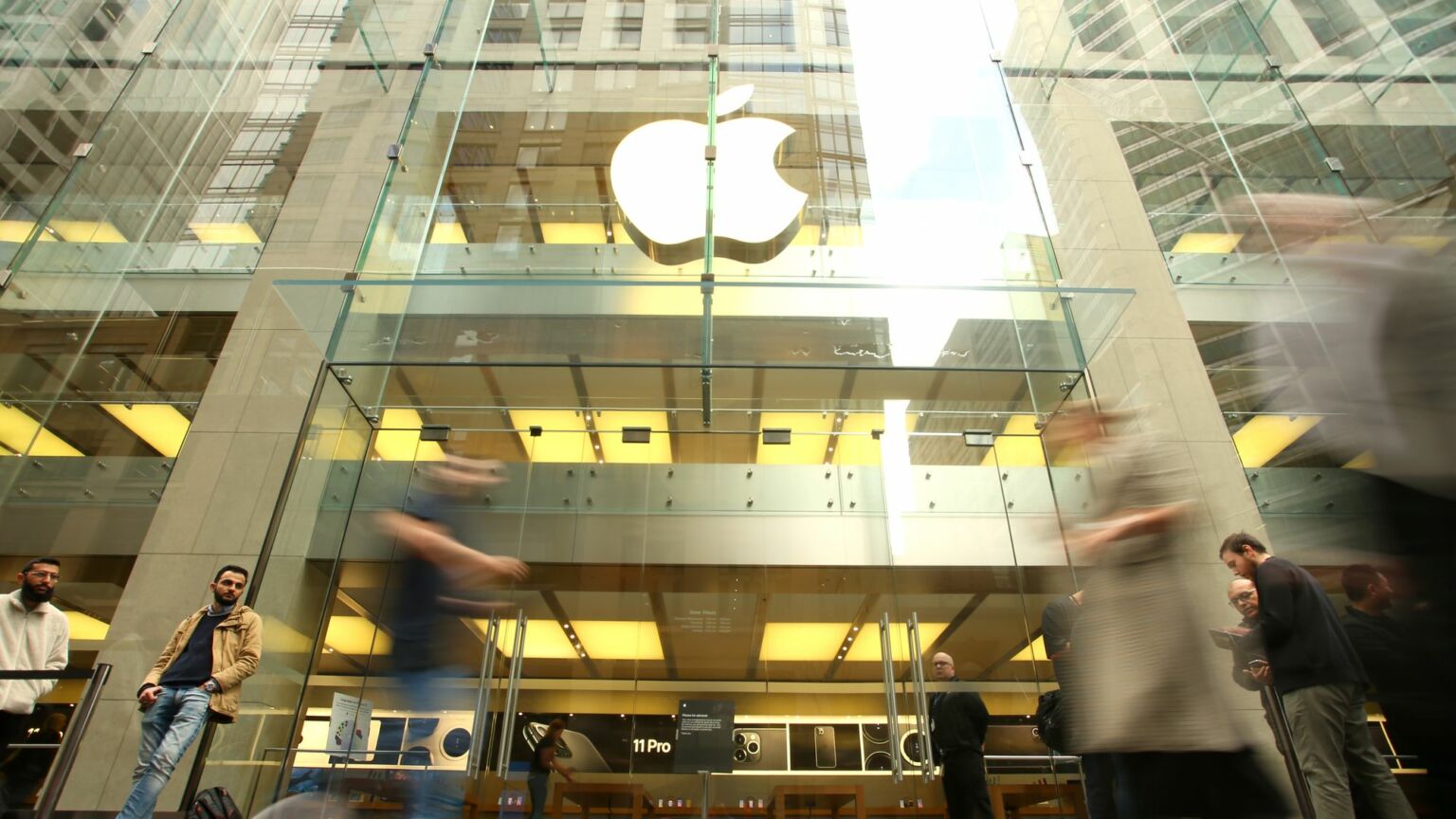
The road to autocracy
The woke left, the reactionary right and the corporate oligarchy are all dragging us towards tyranny.
Ernst Nolte’s Three Faces of Fascism examined the three devastating ideologies that led to the undermining of European democracy in the 1930s. Today, democratic life is also under threat – and there are also three basic forms that this authoritarian threat takes.
The most pervasive comes from the so-called progressive left. The second represents the reactionary response from the right. These two forces are like cats or snakes forced into bags, biting, clawing and spitting at each other.
The most dangerous form of potential autocracy, however, comes not from these extremes, but from the corporate oligarchs. Although they often mimic the cultural memes of the left, the oligarchs, who constitute some of the world’s richest people, certainly do not favour a socialist revolution.
Today, the left revels most in intellectual vandalism, cancelling contrary ideas and shouting down dissenting voices. These ‘progressives’ have achieved virtual control of many key institutions – notably, the education system, the cultural industry and much of the media. In a reversal of traditional roles (once it was the right that tended to advocate censorship), left-wing journalists at places like the New York Times have become the biggest advocates of speech control, as so poignantly revealed in former opinion-section editor James Bennet’s recent exposé in The Economist.
These authoritarian attitudes are increasingly common among Democratic voters, notes a Real Clear Politics survey. Nearly a third of them think that Americans have ‘too much freedom’. This figure is far higher than among either Republicans or independents. And, it seems, education only makes matters worse. Although Ivy League schools have received much condemnation for inculcating these authoritarian attitudes, as Nate Silver points out, they are actually fairly common across all colleges. Universities serve as both the primary incubators and enforcers of ideological conformism. The communities they dominate – such as Boston, Massachusetts – are some of the most intolerant in the US, according to the Atlantic.
Schools like Harvard, Yale and the University of Pennsylvania have long harassed and even forced out faculty who deviate from the accepted norms. As many as 20 campuses in the US ask professors to sign a pledge to support the official campus doctrines on ‘diversity’. Presumably this does not mean diversity of opinion. These pledges eerily reprise the ‘loyalty’ oaths of the Cold War era.
This definition of diversity is certainly a narrow one. Whole academic fields, from music to physics, are being rethought, notes John McWhorter, to exterminate ‘whiteness’. In the UK, some universities seek to replace such supposedly offensive epithets as ‘mother’, ‘men’, ‘parents’, ‘mankind’ and ‘manpower’. People who acknowledge the existence of only two sexes find themselves cut from academic conferences, while some medical doctors are forced to take ‘implicit bias’ training as a prerequisite for work.
Today’s leftist repression, like both Stalinism and fascism before it, seeks to delegitimise any opposition. Platforms like Salon claim that there is ‘no such thing as a conservative intellectual’ and that those who claim to be are little more than ‘apologists for right-wing power’.
Stalin’s attacks on kulaks, and later Mao’s drive to destroy all ties to China’s past, followed similar logic. Both employed control of education to shape young minds. In some places, radical ‘anti-racist’ theocrats have gained power in America’s schools, a bacillus that has also made it over to Britain. The fashionable left increasingly controls what happens in our museums, while woke censors proliferate at large publishing firms on both sides of the Atlantic.
The right today all too often mimics its despised leftist opponents in adopting an authoritarian approach. You can see this in the sometimes cult-like support for Donald Trump among hardcore Republicans. His rise reflects the Republicans’ shift from traditional conservatism to a more strident, more openly nativist, movement.
The rise of an authoritarian right can also be seen in Europe, including in Italy, France, Sweden, Greece, Switzerland and Spain. For some on the new right, the real goal is not to fight off the left to return to a liberal or open state. Many want to return to some imagined past. Some openly admire Vladimir Putin, who seems to meld Soviet ideology with the religious nationalism of the tsars, or Hungary’s proudly illiberal Viktor Orbán. In the US, more than half of all Republicans say they support ‘Christian nationalism’, despite America’s increasingly irreligious and ever more diverse population. The drive to ban abortion, despite mass opposition in even right-leaning states like Ohio and Kansas, reflects a singularly authoritarian mindset.
Cultural issues also play a critical role. The left may seek to ban books like The Adventures of Huckleberry Finn and several Dr Seuss titles, but conservatives are guilty of this, too. The right increasingly seeks to censor not only books promoting gender-identity ideology and nakedly political tracts, but also important authors like Sherman Alexie, Toni Morrison and John Steinbeck.
Even if you disdain their prejudices and distortions, leftist artists are right to warn against these book bans. The identitarian narrative may be false or misleading, but that is no reason to restrict works that confront the toxic residue of slavery, imperialism and sexual discrimination. Many of the book bans from the right – such as attempts earlier this year by Republicans in Iowa to ban Aldous Huxley’s Brave New World – reflect an almost comical lack of self-awareness.
Yet the most dangerous would-be autocrats – the oligarchs – do not wave placards, block traffic, scream at school-board meetings or parade with Confederate flags. Their attempt to impose control from above comes, like Carl Sandburg’s fog, on ‘little cat feet’, delivered through purring, liberal-sounding rhetoric. They may, at times, back the cultural views of the woke left, but they have little interest in any kind of socialist revolution or a comprehensive reduction of their wealth and power.
Today’s digital technology allows a select few companies and the state to hold enormous power over people’s daily lives. Meta, Google, Apple and Amazon represent four of the world’s five most valued firms. The alliance of largely commercial surveillance with government snooping creates the basis for what Michael Shellenberger describes as the ‘censorship industrial complex’. This mechanism reaches deep into the defence and domestic-security apparatus.
Big Tech’s control over information and culture is unrivalled. Apple can bowdlerise the 1971 classic, The French Connection. Amazon can banish Dilbert creator Scott Adams from the dominant digital marketplace. More worrying still, Big Tech can shape political developments, as was so obvious with Twitter’s suppression of the Hunter Biden laptop scandal in 2020. Until recently, Meta had banned Instagram accounts tied to Robert F Kennedy Jr’s independent presidential campaign. LinkedIn also briefly suspended the account of GOP presidential hopeful Vivek Ramaswamy.
A similar censorship industrial complex has also emerged in other countries such as Ireland and Australia. Tackling ‘hate speech’ is the usual excuse given by the authorities. And in normally placid Canada, controversial voices face the threat of re-education for speaking out against woke orthodoxies. Take the case of Jordan Peterson, who was commanded to undergo ‘social-media training’ if he wanted to continue his psychological practice and retain his licence.
The extent of this new surveillance regime emerged during the Covid-19 pandemic. Cajoled by bureaucracies, the tech platforms insisted that the Centres for Disease Control and Prevention (CDC) and the equivalent agencies had exclusive possession of the ‘truth’. Anyone who disagreed needed to be censored, supposedly for the sake of public health. This became a licence to ban even distinguished medical experts like Jay Bhattacharya, a professor of medicine at Stanford University, from communicating dissenting and sometimes correct views on such things as masking, lockdowns and vaccine mandates.
The pandemic engendered a thought-control regime that one federal judge compared with ‘the Orwellian Ministry of Truth’. In Tory-controlled Britain, the BBC, Facebook and Google appeared to work with the government to squelch dissenting views. In 2022, Canada’s prime minister, Justin Trudeau, blocked the bank accounts of truckers who protested against his Covid policies. This is something that Nigel Farage also experienced in Britain, when his bank tried to close his account because of his ‘problematic’ views. While the UK’s Conservative government has publicly denounced the practice of ‘debanking’, it has, at the same time, quietly pushed for the state monitoring of bank accounts.
The lessons of the pandemic have not been lost on the oligarchs and their bureaucratic allies. Many greens, who, as Robert Bryce points out, enjoy ample funding and support from the tech and Wall Street oligarchs, see the pandemic as ‘a fire drill’ for regulating the lives of ordinary citizens. According to one Gallup poll, climate change is named as ‘the biggest problem’ by barely four per cent of Americans. Yet that hasn’t stopped the establishment ‘consensus’ from marginalising any dissent on the green agenda, even from well-established climate scientists. Earlier this year, the International Monetary Fund (IMF), the heart of the global financial establishment, cancelled a planned speech by recent Nobel Prize winner John Clauser because he had dared to challenge the prevailing climate agenda.
The tech oligarch’s platforms are central to this effort. The curators of social-media platforms like Reddit have already banned climate sceptics from their science pages. Meta recently censored well-supported articles that detail the impact on whales from offshore wind turbines. The purveyors of the climate panic count on a pliable media, increasingly funded by non-profits like the Rockefeller Foundation. This foundation, along with the Chan Zuckerberg Initiative, now pays for climate reporters at Associated Press and NPR.
According to the gentry capitalist mouthpiece, the Financial Times, imposing the current climate agenda will require inflicting ‘pain’ on the increasingly sceptical masses. Democracy, suggests Foreign Policy, another establishment voice, represents ‘the planet’s biggest enemy’. Some climate scientists at the end of the recent COP28 conference have even proposed that the world’s governments hand over control of policy to themselves. As one current Biden administration official opined in a 2009 article, the state must force us to change our behaviour to ‘save us from ourselves’.
Do free speech and civil liberties stand a chance? The polling trends are terrifying, reprising attitudes that were widely embraced by both right and left in the 1930s. Nearly two in five millennials, notes the Pew Research Center, favour suppressing speech deemed offensive to minorities. A remarkable 30 per cent, according to one recent survey, even favour government-installed surveillance cameras in homes.
Yet given the acquiescence of political parties to the oligarchs, it falls to ordinary people to slow the authoritarian tide. In some senses, growing scepticism about the powers-that-be is a healthy sign. Trust in the instruments of surveillance, like the once highly regarded FBI, has plummeted. Almost two in three Americans fear the country is becoming ‘a police state’. According to Pew, nearly two-thirds of Americans also dislike the political status quo and barely four per cent think the system is working well. Similar trends have long been evolving in Europe.
The oligarchs and the state may want to impose conformity, but people still react to what they see around them. They are well aware of how the establishment’s favoured policies negatively impact their livelihoods, families and communities. As Larry Summers, a former Obama administration official, has suggested: ‘The willingness of people to be intimidated by experts into supporting cosmopolitan outcomes appears for the moment to have been exhausted.’
Throughout history, attempts by autocrats to remake humanity have failed. This is often at a terrible cost, as we can still see from the legacy of the Soviet Union. Even when bombarded by relentless propaganda, people will resist the imposition of ‘right’ thinking. But people can only resist if they recognise that there is a threat.
Becoming conscious of the autocracy that awaits us is the first step towards preserving our most basic liberties.
Joel Kotkin is a spiked columnist, the presidential fellow in urban futures at Chapman University and executive director of the Urban Reform Institute. His latest book, The Coming of Neo-Feudalism, is out now. Follow him on Twitter: @joelkotkin
Picture by: Getty.
To enquire about republishing spiked’s content, a right to reply or to request a correction, please contact the managing editor, Viv Regan.









Comments
Want to join the conversation?
Only spiked supporters and patrons, who donate regularly to us, can comment on our articles.